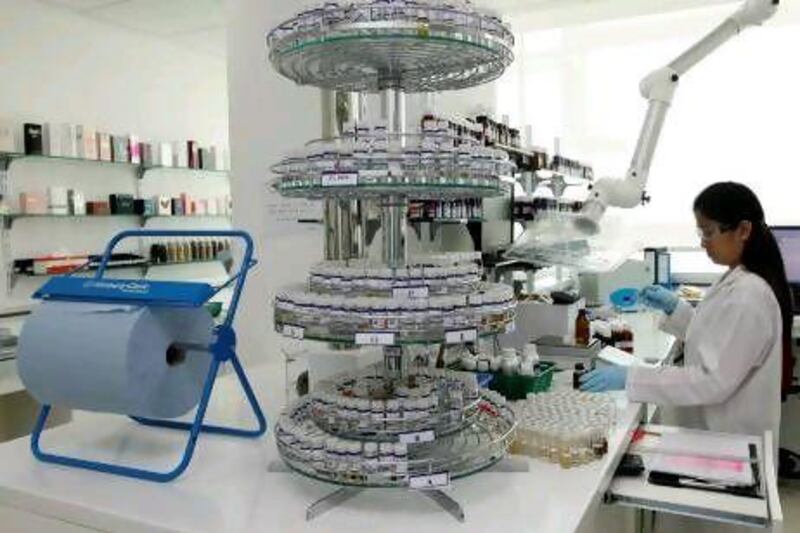DUBAI // Young Emiratis who want careers in research and development should go overseas to gain experience before returning to help the UAE become a centre for innovation, according to an expert.
"There's a life cycle of talent," said Dr Kai Chan, senior adviser to the Emirates Competitiveness Council, a federal government body. "I'd encourage young Emiratis to go abroad to learn and then come back with their knowledge.
"We want to ensure that young Emiratis are going into the workforce equipped, we want to encourage this as we want to be a knowledge-based economy. We do want to become a hub for R&D, we do want to be among the world's leaders."
However, Dr Khaled Amiri, head of the biology department at UAE University, said he did not favour the term hub, as this implied that expatriate researchers would move to the country and then leave after two or three years without passing on their knowledge.
"The nationals are going to complement the non-nationals," he said. "Science to me is an international effort, so we need new sources of information and technology that are being transferred in terms of visiting scholars, visiting professors, science fairs and scientists from different companies, and so forth."
Dr Chan said innovation helped society by increasing the quantity of goods and services it could give its citizens. However, home-grown R&D was important in ways that went beyond the economic benefits, he said.
"Certain medical conditions are more prevalent here than in other countries," he said. "For instance, there is a high incidence of diabetes. So if R&D is being done in Switzerland or the US, they're probably not spending as much in terms of research into diabetes as we would like to see over here for our home market."
Dr Chan is working on a study designed to produce much-needed information on the state of R&D in the UAE. At present no figures exist, and this is harming the country's standing in international reports.
He is gathering data by interviewing experts in companies and universities, and said that many believed the country had laid foundations for becoming an innovation hub. "This has been recognised by a lot of people, including The Economist, which commented in December that the country is at the nascent stage relative to lift-off and becoming a significant innovation and R&D hub."
He said he was facing a number of challenges as he worked on the study. "Trying to come up with a figure for R&D is quite difficult in the UAE. Part of the reason is that we don't have taxes here. This is beneficial in certain ways, but it's tough in terms of data collection.
"In most countries, companies keep track of data very well because of tax breaks and tax incentives for R&D. We don't have that over here."
The lack of data shows up in international reports compiled by organisations such as the World Economic Forum and the International Institute for Management Development.
"When they look at the UAE we have reports that are not as favourable as we would like because we don't report any R&D data," said Dr Chan. "Once this project is over we will be able to submit numbers to international bodies."
He said that many of those he had interviewed said greater collaboration between universities and industry and the creation of umbrella organisations to support innovation and R&D were needed.
Dr Chan and Dr Amiri were among the speakers at the Life Sciences Foresight event organised last week by the DuBiotech science park. Marwan Abdulaziz, the park's executive director, agreed that work needed to be done to bring universities and R&D employers together.
"I'd like to go to UAE University and present to their students and tell them about the opportunities that are out there," he said. "Most of the companies located at DuBiotech have been very welcoming about hiring locals.
"I think it's a matter of closing the gap between the flow of students we have from the universities and the multinationals who are present here. I thinks it's just a question of matchmaking."






